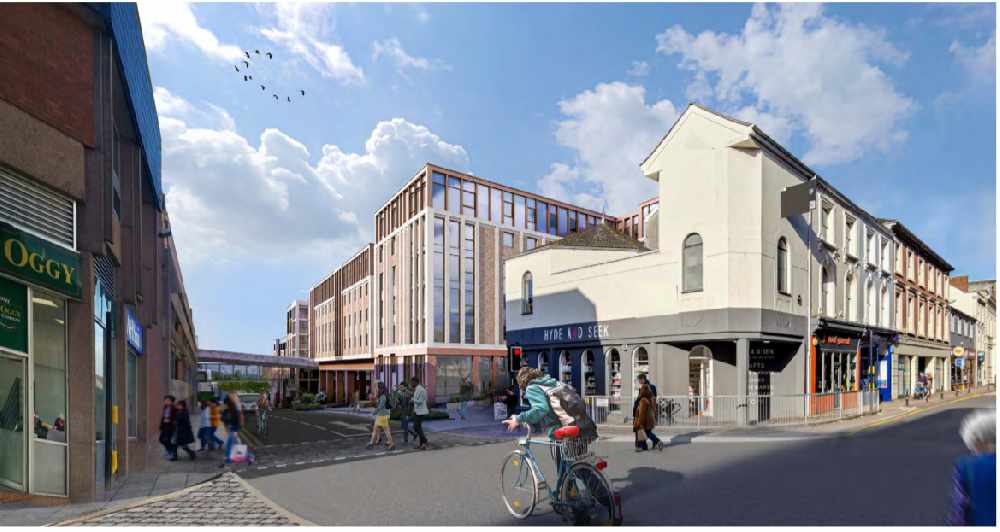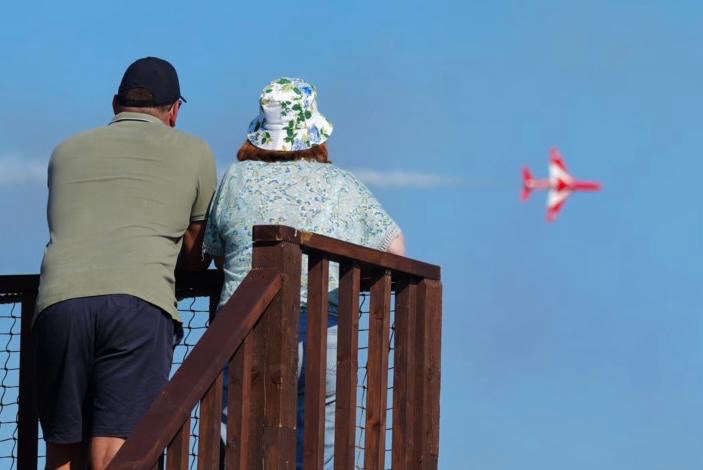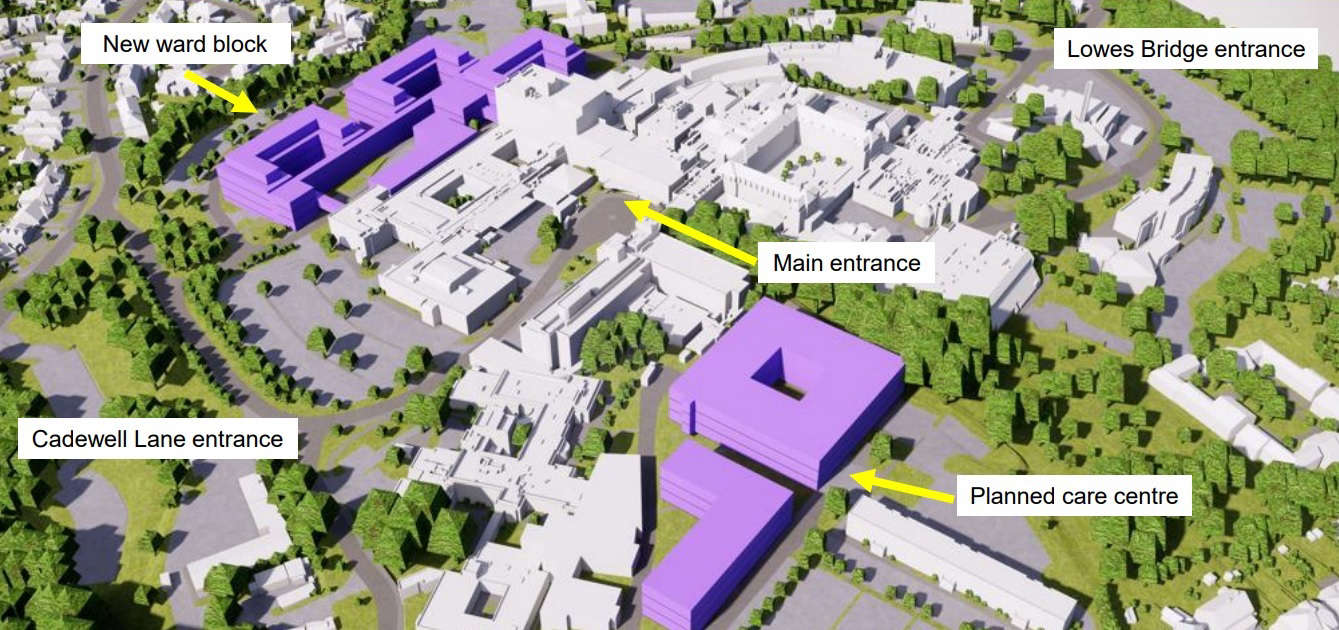
Student flats, rental flats, hotel and bar on the way
Controversial plans to redevelop Exeter’s Harlequin Centre into a ‘co-living’ scheme and a hotel have been recommended for approval.
Developers Curlew believe such co-living would be the first of its type in the south west. Plans for a hotel and bar and restaurant are causing consternation with neighbours, particularly in cul-de-sac Northernhay Street. Some believe it will cause late-night rowdiness. Others are concerned that more traffic will be pushed towards the iron bridge. More are worried about the height of the new development.
One proposed block has 251 co-living bedrooms. Block 2 has116 hotel bedrooms. Both are slightly reduced from earlier plans following discussions with the council and representatives of Historic England. One floor has been removed.
A co-living scheme involves a number of flats being built for students but can be rented by non-students as well. That seems to be the definition of co-living. A 'pocket park' is included. We're told there will be "significant improvements to the urban realm of Paul Street, enhancing the environment for pedestrians and cyclists, and the replacement of the pedestrian bridge over Paul Street with a modern, lightweight bridge."
Some very senior people at Exeter City Council believe Paul Street is currently Exeter's ugliest street. People will form their own opinion about whether the new-look Harlequins (pictured) will be any better.
All but four of the 379 people who commented on the application objected to the scheme. However Exeter City Council planners recommend the plans go ahead.
When the council’s planning committee meets on Monday 26 October 26, they will be told as the council cannot demonstrate a five-year land supply for housing and the housing policies of the development plan are out-of-date, the presumption of sustainable development applies to the application.
The report adds: “This means a presumption in favour of granting planning permission, unless any adverse impacts of doing so would significantly and demonstrably outweigh the benefits, and the balance test is therefore tilted towards granting planning permission.
“The balance test with regard to heritage assets has already been satisfied. There are no adverse impacts of the scheme that are considered to significantly and demonstrably outweigh the economic, social and environmental benefits of the scheme.
“The development has been designed to minimise harm to the heritage assets and take opportunities to better reveal their significance in regard to the scheduled citywWall located behind the shopping centre and the Paul Street part of the conservation area.
It adds: “Planning officers have concluded that the benefits of the scheme, which are significant, outweigh this harm. These benefits include economic growth in the form of job creation and expenditure in the city centre, delivery of housing to help with the council’s lack of five year housing supply, significant public realm improvement works along Paul Street and on the corner of Paul Street and Queen Street, improved public access and setting of the City Wall, with an ‘interpretation centre’, and a biodiversity net gain of 616 per cent.”
The council will receive money from the developers towards the management, maintenance, repair and promotion of the city wall, and public open spaces within the area.
The main concerns raised by objectors were around design, height and massing of the buildings and their harmful relationship to the historic context, impact of the development on the amenity of neighbouring and nearby residential properties, potential traffic impacts and overspill parking, and concerns that the co-living block will be used as student accommodation, is not needed and will not provide a good standard of residential amenity in terms of room sizes
 Misconduct inquiry into suspended chief constable suspended
Misconduct inquiry into suspended chief constable suspended
 Good time for dolphins in Torbay
Good time for dolphins in Torbay
 Devoncast - traffic, trees and Toby Buckland
Devoncast - traffic, trees and Toby Buckland
 Shoplifting and violent crime up in Devon and Cornwall
Shoplifting and violent crime up in Devon and Cornwall
 Riviera Airshow fit to fly
Riviera Airshow fit to fly
 How Torbay Hospital bosses are tackling 'risks'
How Torbay Hospital bosses are tackling 'risks'
